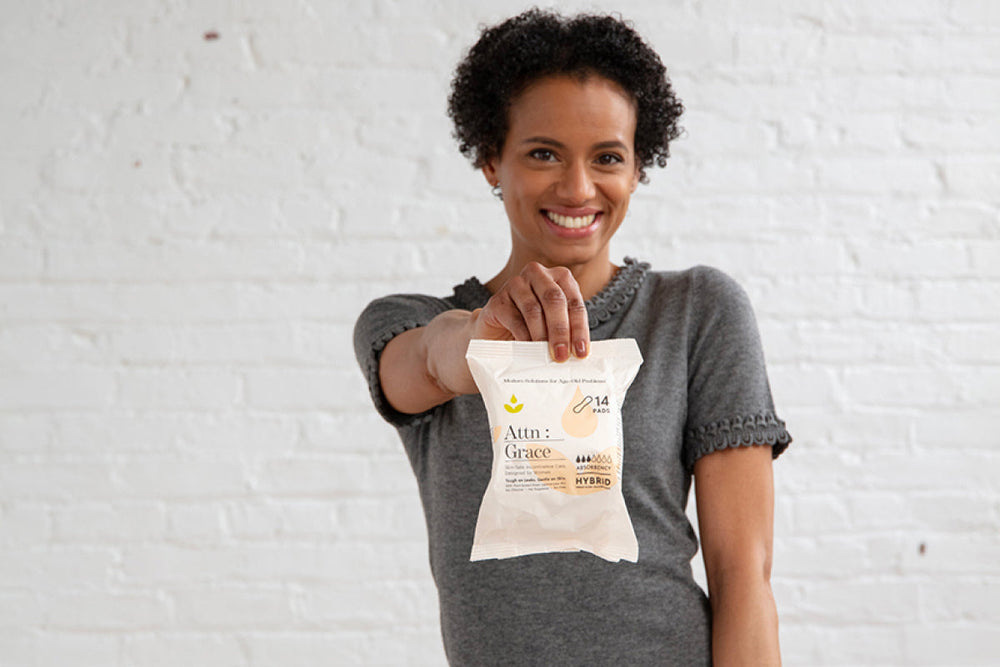Ever notice how you’re running to the bathroom constantly during a heavy period? You’re not alone. About 1 in 4 women experience bladder control issues, and while we often associate them with pregnancy or menopause, your period can also play a big role in how your bladder behaves.
Here’s the thing: hormonal changes during your menstrual cycle can significantly impact bladder control, leading to leaks or an increased urgency to pee. But this isn’t something we talk about enough—it’s often a taboo topic, leaving many women to silently manage their discomfort. The truth? It’s a natural connection between your cycle and bladder health. Let’s break it down:
What Are Bladder Control Issues?
Bladder control issues, or urinary incontinence, happen when the bladder muscles and the sphincter (the muscle that helps hold urine in) don’t work in sync. This can lead to leaks or an overwhelming urge to pee.
Normally, your bladder acts like a stretchy balloon, expanding to hold urine and shrinking when it’s time to go. But when bladder muscles contract involuntarily, or the sphincter doesn’t hold tight, leaks can happen.
How Periods and Bladder Control Are Connected
Believe it or not, your period can directly impact your bladder. Research shows that about 42% of women experience bladder leakage just before their period, and 36% report issues during their period. The culprit? Hormonal shifts.
Here are the three main ways your period can affect your bladder:
1. Hormonal Fluctuations Throw Things Off
Estrogen Levels: A drop in estrogen during your period can weaken the tissue supporting your bladder and urethra, leading to leaks. It also increases bladder sensitivity, making you feel like you need to pee more often.
Progesterone Levels: Progesterone, which rises before your period, is a natural diuretic. This increase can trigger your kidneys to produce more urine, upping the frequency of bathroom trips.
2. Inflammation and Bladder Sensitivity
Prostaglandins (hormone-like chemicals released during menstruation) cause inflammation that can irritate your bladder. This can lead to sudden contractions, making it feel like you need to pee urgently—even if your bladder isn’t full.
Lower estrogen levels can also make the urinary tract more sensitive, sometimes mimicking symptoms of a UTI (like burning or frequent urination).
3. Pelvic Floor Tension
Menstrual cramps don’t just affect your uterus—they can tighten the muscles of your pelvic floor, which support your bladder. This added pressure can lead to bladder spasms and leaks, especially during physical activities like coughing, sneezing, or running.
How to Manage Bladder Issues During Your Period
While you can’t skip your period, you can take steps to support your bladder health during that time of the month. Here’s how:
1. Stay Hydrated
It might seem counterintuitive, but drinking plenty of water helps reduce bladder irritation. Proper hydration flushes your bladder and prevents the discomfort that comes with concentrated urine.
2. Adjust Your Diet
Avoid caffeine, alcohol, and acidic foods during your period—they act as diuretics and can irritate your bladder. Instead, load up on leafy greens to support bladder health.
3. Strengthen Your Pelvic Floor
Kegel exercises are a game-changer for bladder control. Strengthening your pelvic floor muscles can help you better manage leaks and urgency.
4. Consider Hormonal Contraceptives
Birth control pills and patches can regulate the hormonal swings that affect your bladder. Talk to your doctor to see if this option makes sense for you.
5. Manage Period Pain
Reducing menstrual cramps can ease the tension in your pelvic floor and bladder. Heating pads, NSAIDs like ibuprofen, and even gentle yoga stretches can help.
6. Train Your Bladder
Try to gradually extend the time between bathroom trips. Start by holding off for 10 minutes, then work your way up to 2-3 hours. Over time, this can help improve bladder control.
7. Double Void
Empty your bladder completely by waiting a few minutes after peeing and trying again. This can help prevent leftover urine from causing discomfort later.
8. Maintain a Healthy Weight
Extra weight puts added pressure on your pelvic floor, which can worsen bladder issues. Regular exercise and a balanced diet can help ease that strain.
Can You Use Period Pads for Incontinence?
Period pads are great for menstrual flow, but they’re not designed to handle bladder leaks. For light leaks, reusable period underwear can be a convenient option. But if you experience more significant bladder leakage, consider using incontinence pads, like Attn: Grace’s ultra-thin, skin-safe pads.
Unlike other bladder leak pads, Attn: Grace pads are designed for maximum absorbency, offering superior leak protection while staying breathable and discreet. Plus, they’re made with planet-friendlier materials, and skin-safe ingredients - so you can feel peace of mind knowing the do less harm to the planet and less harm to you.
When to Seek Help
If bladder issues persist or worsen, it’s important to talk to a healthcare professional. Chronic leaks or discomfort could be a sign of an underlying condition that needs attention.
The Bottom Line
Your period can bring about hormonal and physical changes that make bladder control more challenging—but you’re not alone, and it’s nothing to be ashamed of. By understanding how your cycle impacts your bladder and taking simple steps to support your body, you can manage leaks and stay comfortable throughout the month.
And remember, at Attn: Grace, we’re here to help with products and tips designed to support every part of your wellness journey.
Have questions? Our customer service team is always happy to help. Send us an email at hello@attngrace.com or give us a call at
